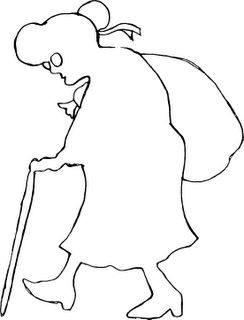Whew. How are those connected? Odd reminiscences here. Cleaning my bathroom yesterday, I suddenly recalled how intrigued I was with white toilets as a child. (My bathroom has pink fixtures, coordinated with chocolate brown/pink tiles—not my choice.) My family’s bathroom had gray fixtures—at the time, non-white porcelain was pricey, and we couldn’t afford luxuries. As my uncle was a plumber, I’m guessing my parents got a pretty good deal on the tub, toilet and sink. Gray figured prominently in my mother’s bathroom decorating scheme (and I think, in retrospect, that it was a good color scheme, though never completed). When I was nine, we moved to a house that had white bathroom fixtures, which I liked. Now, for the bread. Decades before organic farming was in vogue, we baked our bread from wheat organically grown on our farm. Brown, real whole wheat bread, made with honey, not sugar. I grew up with it, I knew how to grind the flour (we had a small flour mill), mix and knead the ingredients, shape the loaves, bake and package for the freezer. We made twenty loaves at a time. Until fifth grade, I brought my brown-bread lunch sandwich to school. Whenever we visited someplace food was served, I was entranced by white bread (Wonder Bread—Builds Strong Bodies Twelve Ways!). It was so marvelously spongy, even though it didn’t spring back. I couldn’t get enough of it, despite my mother’s frowns when I chanced to look at her. “People will think we never feed you!” And then there were the light switches. My father was an electrician, and in building our house, he incorporated features that most people didn’t have. Each bedroom had light switches that controlled both the room and hallway lights—tap lightly to turn on, again to turn off. My parent’s bedroom also had switches for other house lights and the yard light. So the house we moved to when I was nine was also special to me because the light switches were “normal”—the kind you flicked up and down for on and off. Maybe the house made me feel like I finally belonged. (Even though we continued to make our own bread, I ate school lunches from fifth grade on. Quite the rebel.) Just because everybody else had these things: white bread, white toilets, regular light switches.
When I was a child, I thought as a child. Now I know why we didn’t belong—we truly didn’t—and the externals I focused on were only the tip of the iceberg. Story for another time.
 You are Proverbs.
You are Proverbs.
 You are Rerun!
You are Rerun!
 You are Saint Francis of Assisi! You don't care
what you look like (or smell like) as long as
you can live simply and help the poor. You
should be receiving your stigmata any day now.
You are Saint Francis of Assisi! You don't care
what you look like (or smell like) as long as
you can live simply and help the poor. You
should be receiving your stigmata any day now.
